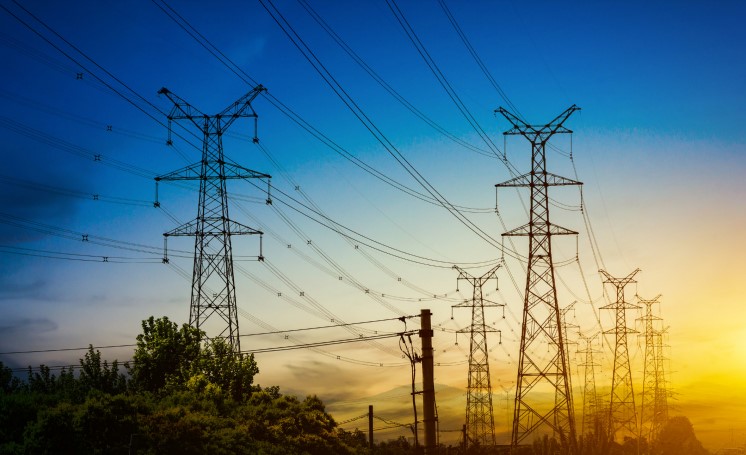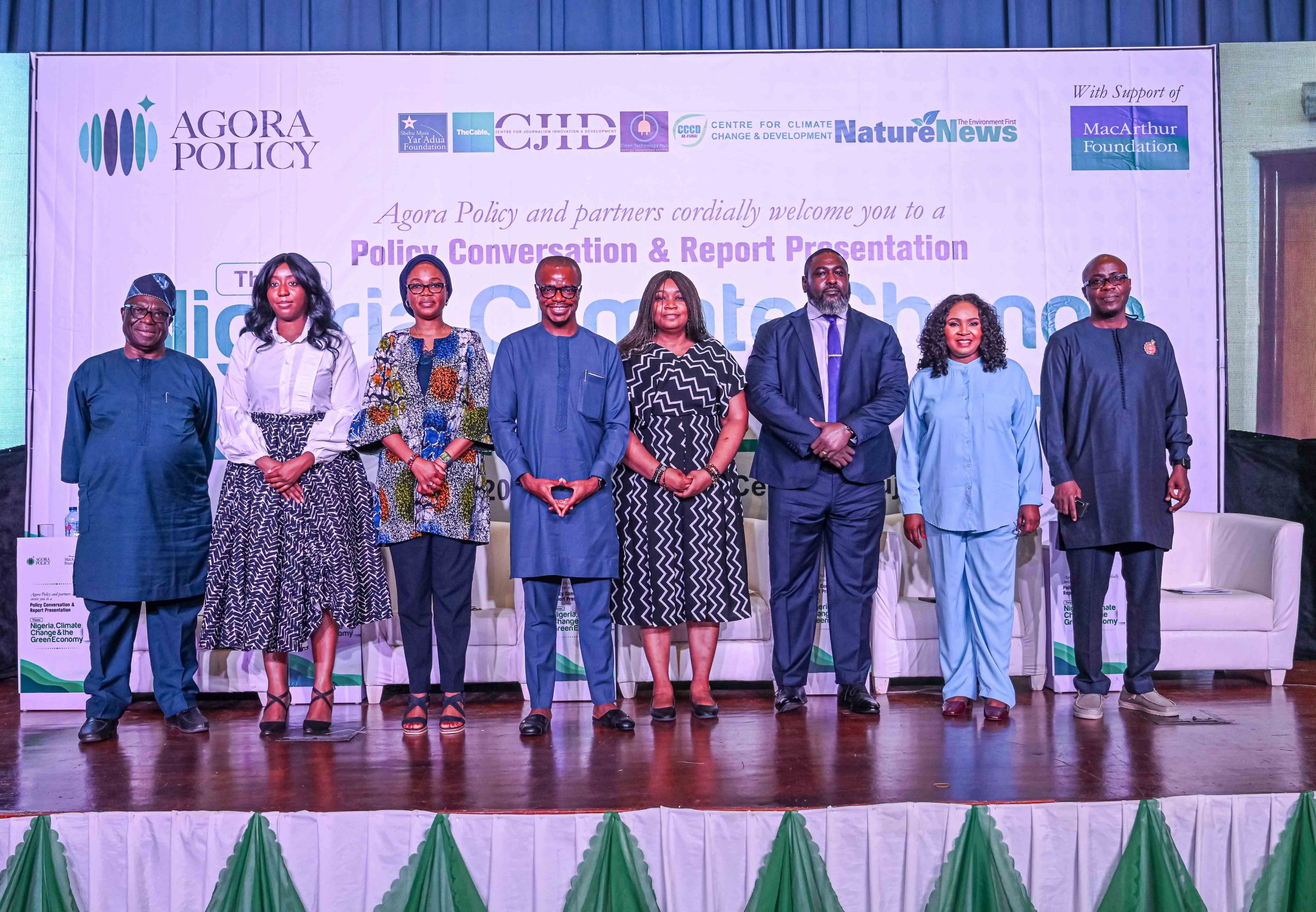By Odion Omonfoman
The centrality of adequate and reliable electricity supply to individual welfare, economic growth and overall national development cannot be over-emphasised. This message is not lost on Nigeria. However, various initiatives and reforms aimed at creating an optimal power sector for the country have fallen short. The reforms initiated by the President Olusegun Obasanjo administration, leading to the privatisation of the power sector in 2014, is yet to yield the desired results.
According to the World Bank1, Nigeria has the largest energy access deficit in the world. 85 million Nigerians, representing 43% of the country’s population, don’t have access to grid electricity. In comparison, 85% of Ghana’s population have access to electricity, while 70% of Senegal’s population have electricity access2. The World Bank estimates that the lack of reliable power costs the Nigerian economy over $26.2 billion (N10.1 trillion) which is equivalent to about 2% of Nigeria’s GDP.
This is not to say that Nigeria has not made some progress in the power sector since 1999. For instance, in 1999, Nigeria had nine power generating stations—three hydro and six thermal stations—with a total installed on-grid generation capacity of 5,906 MW, but with available generation below 1,500 MW3. Today, Nigeria has up to 26 on-grid generation stations with a total installed capacity above 13,000 MW. However, available generation capacity hovers around 4,000 MW, with average daily energy output of about 100,000 MWH. Sadly, the little progress that has been made in the power sector since 1999 is neither at par with our population growth nor adequate for the energy needs necessary to achieve our economic potential. For reference purposes, Nigeria’s energy consumption per capita at 140kWh is relatively low and is three times lower than the average for Sub-saharan Africa4.
The privatisation of the power sector in 2014 was intended to address Nigeria’s power sector infrastructure and operational challenges, by reducing the direct participation of government in electricity generation and distribution, creating an efficient, contract-driven electricity market, and putting the power sector in the hands of private investors, who would bring capital, operational capacity and efficiency into the sector. Unfortunately, privatisation of the power sector hasn’t really taken government out of direct participation in the sector, nor has it improved operational efficiency in the sector.
As a matter of fact, government’s role and direct participation in the sector has not only expanded, government is currently the largest provider of capital to the sector. Since 2015, government has provided over N4 trillion in capital to the power sector supposedly managed by the private sector. Even worse, the privatisation of the sector has created a huge debt burden for the government, arising from market obligations to private investors. The market obligations were created as liabilities under the balance sheet of the Nigeria Bulk Electricity Trading Plc (NBET), which is a government entity set up to buy wholesale power from electricity generation companies (GenCos) under Power Purchase Agreements (PPAs) and sell same to electricity distribution companies (“DisCos”) under vesting contracts with the DisCos.
The market obligations are mainly debts owed to gas suppliers, shortfall payments to GenCos under the PPAs, and market shortfalls arising from non-review of electricity tariffs by the Nigerian Electricity Regulatory Commission (NERC), the sector regulator. The Federal Government has also gone on a borrowing spree to fund the power sector, particularly the national transmission grid managed by the Transmission Company of Nigeria (TCN), which is still 100% controlled by the government. Some of the loans have been used to fund the improvement of electricity distribution infrastructure of DisCos and also to finance electricity prepayment meters for end-user customers under the National Mass Metering Programme (NMMP).
Policy Recommendations for the Next Administration
Adopt a Paradigm Shift from Installed Capacity to Electricity Consumed
Electricity, however it is generated, is a commodity and has to be consumed (or stored) for electrical energy to be useful. The most meaningful measure of electrical energy in any economy is how much consumption there is. Thus, there is a need for government to stop thinking about electricity in terms of megawatts (MW) that can be generated, and start thinking in in terms of incremental megawatt-hours (MWh) generated and consumed. In other words, government should stop thinking of installed generation capacity and start to think in terms of the amount of electricity delivered, or in layman’s terms, how much electricity is generated and consumed every hour by electricity consumers in Nigeria.
This is an important paradigm shift with positive impact for government, as having such policy mind-set changes the prioritisation and allocation of public and private resources to projects, interventions and initiatives across the electricity value chain that will increase the energy output, availability, reliability and quality of electricity delivered to end-users. By the way, electricity consumers are billed on a kilowatt-hour (kwh) basis (consumption), not on a kilo-watt(capacity) basis.
Under the new paradigm, we expect the incoming administration spokespersons to make statements such as “we will increase the total electricity delivered to Nigerian households and businesses from xyz megawatt-hours (MWh)by 100%within x months”, rather than the usual statement saying “we will increase generation capacity to 20,000 megawatts (MW)”.Increasing generation capacity to 20,000 MW without most of the 20,000 MW being consumed or a corresponding increase in electricity consumption is not only meaningless but also fiscally detrimental to the country.
Increase in megawatt-hours delivered to electricity customers can be achieved if there is a seamless conversion and flow of energy from the natural gas fields to the generation stations, and from the generation stations to the high-voltage lines that transmit the energy to the national grid, and ultimately to medium-voltage and low-voltage lines that distribute the energy to end users. In this regard, the incoming administration needs to prioritise solving the interface issues and challenges across the entire power sector value chain (from natural gas-to-electricity interface, generation-to-transmission interface to transmission-to-distribution interface), building on the current initiatives and projects of the President Muhammadu Buhari government, with a strategic objective to optimise the value-for-money outcomes of a number of these projects, initiatives and interventions.
Continue with Implementation of the Buhari Administration Power Sector Programmes
As stated above, the incoming administration needs to continue the implementation of the power sector programmes, initiatives and interventions carried out by the Buhari Administration. Often times, new administrations are under political pressure to either terminate, suspend, put on hold, or create parallel projects, policies and interventions in the power sector. As an example, the administration of late President Umaru Musa Yar’Adua government suspended indefinitely the implementation of the National Integrated Power Projects (NIPP) and other power sector reform initiatives by the administration of President Obasanjo, with great negative consequences that the power sector is yet to recover from.
The Buhari administration initiated a number of interventions to address the challenges of the power and improve the infrastructure across the sector. The most talked about is the Siemens power projects, being implemented under the Presidential Power Initiative (PPI). The Siemens project is a three-phase infrastructure initiative designed to rehabilitate, upgrade, modernise and expand power transmission and distribution infrastructure across Nigeria. Phase one of the PPI is estimated at 2.3billion euros. 85% of the funding will come from a consortium of German banks and in certain instances, Development Finance Institutions (DFI) at a concessionary rate, and guaranteed by the German Export Credit Agency and other export credit agencies. The Nigerian Government will provide a counterpart funding of 15%. The implementation of the phase has since commenced, with many of the long lead transmission equipment scheduled to arrive before the end of Q2, 2023. The successful implementation of Phase 1 of the PPI will add 2GW of stranded generation capacity to the national grid, and will certainly increase the daily electricity delivered to electricity customers from the present daily average of 100,000 MWH.
Aside from the Siemens projects, the TCN has also secured a number of offshore financing to improve transmission infrastructure across the country. The Central Bank of Nigeria has also been involved in providing long-term capital to the sector for transmission and distribution interface projects. The World Bank funded DISREP is a $500 million programme to help improve service quality of DisCos in the areas of metering, loss reduction and distribution infrastructure network rehabilitation, improvement and expansion. The National Mass Metering Programme (NMMP) is an initiative aimed at closing the metering gap in the country.
The incoming administration should continue the implementation of these and perhaps other projects and initiatives of the Buhari administration in the electricity sector. While we advocate for the continuation of the Buhari administration interventions, the incoming administration should also review and optimise some of these programmes and initiatives to ensure value-for-money.
Develop a New National Electricity Policy Framework & Amend the EPSRA
Nigeria’s subsisting national electricity policy was developed in 2000. The policy has basically remained unchanged since it was developed under late Dr. Olusegun Agagu as the Minister of Power. The National Electric Power Policy was the policy document that guided the power sector reforms and gave birth to the Electric Power Sector Reform Act passed by the National Assembly in 2004 and signed into law by President Obasanjo in 2005. Since its passage, the EPSRA (2005) has also remained unchanged, despite the urgent need for more reforms in the power sector.
With the recent constitutional alteration of section 14(b) of the concurrent legislative schedule of the 1999 Constitution (as amended), it has become more imperative to develop a new national electricity policy. More so as decarbonisation and energy transition from fossil fuels to clean sources of energy are now very important aspects of any country’s national energy policy. Consequently, the incoming administration must develop a national electricity policy that reflects the electricity aspirations of both the Federal Government and the states in line with the new provisions of the Constitution.
In same vein, the EPSRA (2005) is no longer fit-for-purpose. The 9th National Assembly had commenced the process of repealing or amending the EPSRA. While the Senate repealed the EPSRA (2005) and passed the Electricity Bill 2022, the House of Representatives just passed the EPSRA amendment bill in April. It is hoped that the 9th National Assembly can conclude the legislative process of harmonising the two bills, and pass the harmonised bill for presidential assent before May 29th, 2023. However, there is no certainty that this will happen or that President Buhari will sign the bill into law before leaving office.
In the event that the EPSRA repeal/amendment bill is either not passed by the 9th National Assembly, or that President Buhari declines assent to the bill, the incoming administration should fast-track the passage of a new electricity act by the 10th National Assembly to reflect the new electricity frame work as envisaged by the Constitution and give States the unfettered rights to develop the electricity sector, including creating electricity regulatory structures and state electricity markets within their territorial boundaries.
The new electricity law should strengthen the national regulatory framework and the powers of the NERC as the electricity regulator, improve and strengthen existing electricity market structures, incentivise the market to a more efficient, contract-based market, decentralise the operations of the TCN and in general, reduce government’s participation and allow more private investments in the power sector by opening up the sector to greater market competition.
Establish a Standing High-Level Inter-Ministerial Energy Committee
Lack of effective co-ordination of the various segments of the power sector value chain is one of the causes of the dysfunction in the sector. Thus, the incoming government should consider the establishment of a standing inter-ministerial energy committee to be chaired by the Vice President. The inter-ministerial committee members should include the Minister of Power, Minister of Petroleum Resources (or such designate), Minister of Finance, the Permanent Secretaries of the mentioned ministries, the chief executives of NERC, the Nigerian Upstream Petroleum Regulatory Commission (NUPRC) and the Nigerian Midstream and Downstream Petroleum Regulatory Agency (NMDPRA), the Governor of the Central Bank of Nigeria and heads of other key agencies and departments in the oil and gas sectors and the power sector. The inter-ministerial committee’s role will be to ensure effective coordination of agencies and operators that are part of the gas-to-power value chain.
Empower States to Develop Sub-national Electricity Markets
With the constitutional amendments that grant states’ houses of assembly the power to make laws for electricity generation, transmission and distribution within areas covered by the national grid in their domains, states and other sub-national governments have finally become players in the electricity market. The incoming administration should work with the states to develop the electricity markets within their localities.
State governments should be encouraged to take steps to begin to develop the electricity resources within their areas in collaboration with the Federal Government and under the framework of the new national electricity policy and amended EPSRA. That means the incoming state governments will also need to develop the right electricity policy framework for their states, and develop the right legal and regulatory frameworks that would create efficient and competitive electricity market structures, which can help them to attract needed investments into the electricity market. Also, states should be encouraged to drive rural electrification.
Improve the Energy Mix &Address Energy Transition Issues
Nigeria’s energy mix consists of fossil fuel and renewable energy sources, mainly hydropower generation and increasingly generation from solar energy. However, our energy mix is still dominated by fossil fuel—natural gas and diesel/petrol (largely for self-generation). This is understandable as Nigeria has Africa’s largest crude oil and natural gas resources. However, this presents a problem for Nigeria as the world moves to cut fossil fuel consumption in order to achieve carbon neutrality (net zero CO2 emission).
At the United Nations Climate Change Conference event in Glasgow (COP 26), Nigeria committed to carbon neutrality by 2060, and to this effect has unveiled its Energy Transition Plan (ETP). An Energy Transition Implementation Working Group (ETWG), situated in the Office of the Vice President, has been established to drive the implementation of the plan. In the ETP, Nigeria puts forward a robust argument for the utilisation of its vast natural gas resources as a transition fuel for its energy requirements. It is reassuring that the World Bank in a recent publication recognises that natural gas can be a transition clean fuel for developing countries like Nigeria with vast natural gas resources and existing natural gas generation plants.
Consequently, the in-coming administration must continue the implementation of the ETP to achieve a faster transition to carbon neutrality by 2060. There needs to be focused investments at targeting new investments in additional power generation into renewable energy power generation sources such as solar and hydropower energy sources. At the moment, there is no solar energy generation into the national grid – and for obvious reasons ranging from grid connection, grid instability, existing stranded generation and payment assurances for the power to be produced.
However, it is high time that a grid-based, solar energy generation plant is established to optimise our power generation resources and reduce the percentage of fossil fuel in our national energy mix. Beyond having an on-grid solar power plant, there needs to be continued and sustainable investments in off-grid renewable energy generation, such as mini-grids, to serve rural communities and underserved communities. However, this should be done with greater collaboration between the Federal Government agencies responsible for rural electrification and the state governments.
Resolve the Privatisation Puzzle
The privatisation of the power sector is one of the most controversial privatisation exercises so far in Nigeria. A lot has been written about the privatisation but suffice to say that the Eldorado promised with the privatisation of the sector has not yet materialised. Many would blame the Federal Government at the time for forcing through a privatisation of the power sector that clearly was not at the stage to be privatised. But this is neither here nor there. The task is to address whatever gap exists.
This is not to say there has not been any progress in the power sector since privatisation. As a matter of fact, the privatisation of the sector increased total available generation capacity since 2014, as core investors in the successor GenCos invested to rehabilitate and restore installed capacities in some GenCo plants. For instance, the core investors in Egbin, Kainji, Ughelli and Jebba power plants have restored the installed generation capacities for these plants.
At the heart of the seeming failure of the power sector privatisation exercise is the inability of the electricity industry to achieve a contract driven, regulated market as envisaged in the power sector reforms. Only recently, it was reported that the partial activation of contracts in the sector spearheaded by the NERC in June 2022 has collapsed. Without activated contracts (PPAs, Vesting Contracts, Gas Supply Agreements, etc) amongst market participants in the NESI value chain, the benefits of privatisation may never be realised.
Consequently, the incoming administration should prioritise the resolution of the privatisation conundrum, particularly with a view to ensuring a “sensible activation” of contracts in the industry. By “sensible activation” of contracts, we mean allowing more bilateral negotiations, rather than an imposition, of market contracts amongst parties in the industry, under the regulatory oversight of the NERC.
The in-coming administration also needs to look at re-privatising some of the DisCos that have been taken over by lenders due to default by core investors in meeting the acquisition loan repayment terms to the lenders, or under some form of administration by the NERC and the CBN. The failed DisCos in administration should be broken into smaller franchise areas preferably along state boundaries, and privatised as new entities. Lastly, there is the “unspoken” issue of the payment of the huge market debts in the sector. For instance, GenCos claim that they are owed over $1 billion by the NBET. It is unclear how the new government would address the payment of these debts.
Reversing the privatisation of the power sector should not be contemplated under any circumstance. The privatisation process has built-in contract provisions to address the failures of any core investor under their performance agreements. What is needed is for the government to activate these contract provisions, provided the government has also met its own obligations too to core investors.
Improve Gas Supply to the Power Sector
As earlier stated, Nigeria’s energy mix is largely driven by natural gas. Consequently, the unimpeded availability and supply of natural gas to thermal power stations is most critical in attaining incremental megawatt-hours of electricity consumption by end-users, transmission and distribution infrastructure permitting. While Nigeria has the largest natural gas reserves in Africa, our power generation plants engage in a daily struggle to get enough natural gas to run their gas turbines.
Thus, improving gas supply to the power sector will require addressing the bottlenecks in the gas–to-power value chain. These bottlenecks include insufficient investments in gas-to-power infrastructure, and gas-to-power pricing and timely payments to gas suppliers for contracted gas delivered to power plants. From its policy document, the incoming administration plans to introduce a “Nigeria First” policy to prioritise the utilisation of Nigeria’s natural gas resources to electricity generation before export. This will be a welcome policy, if developed and implemented.
However, the issues around gas supply to the power sector are also anchored around sustainable investments in natural gas exploration, development and production. Equally important is robust security and protection of oil and gas infrastructure across the country. Thus, any “Nigeria First” natural gas utilisation policy must seek to address these upstream and downstream issues in the oil and gas sector.
Conclusion
There is a temptation to delve into more tactical issues and challenges in the power sector such as resolving the metering gap, estimated billing, resolution of financial distress in the power sector and other operational issues affecting the electricity industry. Putting together the tactical plan to resolve the issues should be left with the power sector team to be assembled by the incoming administration. Some of the recommendations here can serve as guides to the incoming president in thinking about the critical issues in the sector and in setting the terms of reference for his power team.
*Omonfoman, a power sector expert and the CEO of New Hampshire Capital Limited, is the lead consultant on power to the Nigeria Governors’ Forum.
[1]https://www.worldbank.org/en/news/press-release/2021/02/05/nigeria-to-improve-electricity-access-and-services-to-citizens
[2] https://ourworldindata.org/energy-access
[3] National Electric Power Policy Document, 2001




